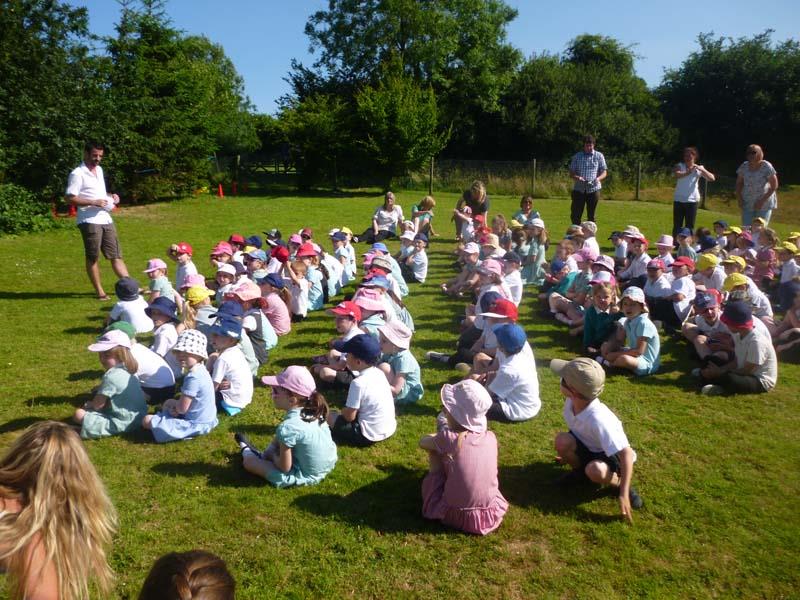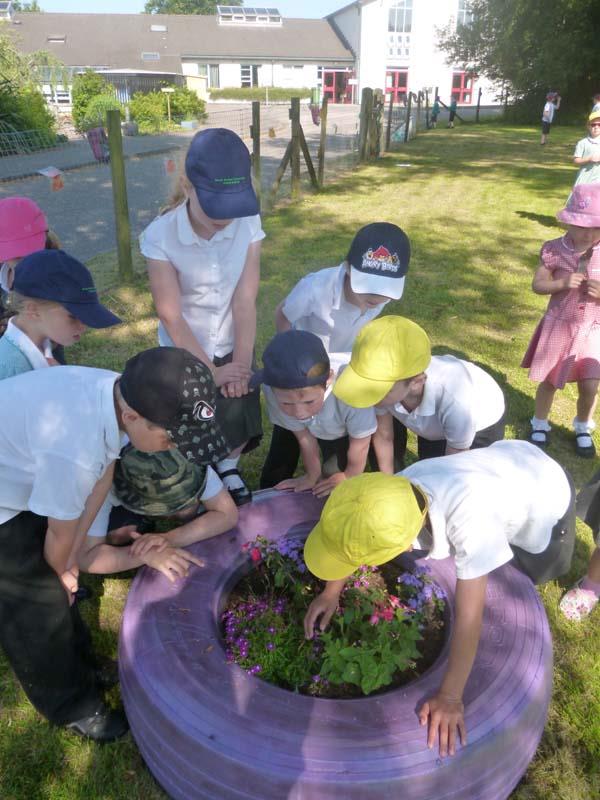At South Molton Community Primary School in Devon we believe firmly in the importance of teaching children about environmental issues and ensuring outdoor learning plays a non-negotiable part in every child’s development.
Children have become accustomed to flicking a switch and their electrical items springing to life, with very little thought about what powers this and how it is produced. This is something we feel that children need to learn about from a very young age and have reinforced throughout their time in education.
Our termly “No Electricity Days” have become an essential part of our curriculum and provide the inspiring learning opportunities to get children interested and involved. We also use this as an opportunity to encourage outdoor learning in the natural environment, as without the lights, whiteboards and computers why not go out and use the amazing natural learning environment all around us.
Outdoor learning requires teachers to think creatively about how to adapt teaching for lessons without electricity and technology and I have seen many inspirational lessons being taught away from the confines of the classroom.
It encourages children to be imaginative in their learning and inspires them to achieve and develop life-skills. Every child at our school has a Forest School session once a week throughout the year and we feel this is a vital part of the curriculum. We use Forest School sessions to deliver a variety of curriculum subjects while giving children time to be independent, imaginative and creative in the outdoor area.
A child in year 2 described outdoor learning as the “best part of the week because it is really exciting, fun and we learn lots”. Outdoor learning has taken on this important role as it demonstrates a significant positive effect on children’s wellbeing, concentration, resilience and a whole range of other skills.
These skills have helped the children at our school to achieve very well and has been a hugely important part of the success the school has had in raising standards.
The No Electricity Days started a few years ago as an annual event and because of their success with the children and staff we have held termly days for the last 18 months. We have a different focus for each of these days and use them to be creative, imaginative and connected to the natural world around us.

Alongside this, we teach children that the mass production of electricity is one of the finest achievements of the human race to date, without which none of the recent technological advances would have been possible. What is even more amazing for children to learn is that we can create large scale electricity using renewable sources that don’t damage the environment or pollute the atmosphere. Unfortunately the way we create electricity, using non-renewable sources, does damage the environment and can cause a huge amount of pollution.
The No Electricity Days have had a big impact on how the children think about and use electricity, with children often asking in assembly: “Do we need all the lights on in the hall?” Children have become far more aware of the need to conserve electricity where possible and to appreciate the availability of this, which may not always be the case in the future.
A world of declining resources to create electricity, population growth and a reluctance to put full weight behind renewable energy sources means that the adults of the future will undoubtedly live in an era where electricity is no longer on demand at all times. This is a stark realisation to a generation that has been brought up with electricity always being available at the flick of a switch and all the technologies relying on this supply.
Curriculum links during No Electricity Days have a strong focus on STEM subjects. Considering how electricity is created and technology has been invented and developed through history is an ideal opportunity to expose children to future careers in STEM areas that they may not have been aware of. The great achievements of British and international scientists and inventors can be celebrated and used as a tool to inspire all children to make a difference in our world.
The Green Team has helped to remind children around the school about the on-going importance of saving electricity by developing a colour-coded system for electrical switches, with green stickers indicating that a switch that can be turned off if not in use. A red sticker indicates a switch that children should never turn off – with the children taking responsibility for the monitoring of this.
The Green Team leads regular assemblies in reporting back on their work and can often be seen working as detectives around the school to assess any waste of electricity that might be occurring.
One Green Team member said: “We really enjoyed learning about how to save electricity, it was fun sticking stickers around the school to help everyone save electricity and we love checking which classroom is wasting the most electricity.”

As a school we would like to take our no electricity days a step further and have a wider impact in saving electricity and raising awareness of the issues around this. We are holding a “Totally Unplugged” event in which we would like schools, businesses and families to take part from all around the country. On Thursday, July 7, we want as many people as possible to join us in either turning off all of their electricity or to simply save as much electricity as possible.
This could be as simple as turning off your whiteboard and computer in the classroom for the day or turning off a light in the office where you are working. Our aim is for there to be noticeable difference in the amount of electricity being used compared to the average use on a similar day.
We want as many schools to join in as possible and to help encourage schools we will be creating a pack of resources that will contain ideas for the day.
This pack will link in with the national curriculum for all key stages, have practical help in ways to save electricity and also ways around the question on every teachers mind – what about the kettle? If you would like to join in with the Totally Unplugged event or to receive the resource ideas pack then please get in touch using the contacts below and we will help in any way we can.
Together we can make a real difference.
- Tom Parkin is headteacher of South Molton Community Primary School in Devon. Email him at head@southmoltonprimary.devon.sch.uk or visit www.southmoltonprimary.devon.sch.uk
